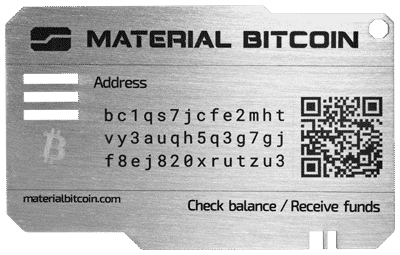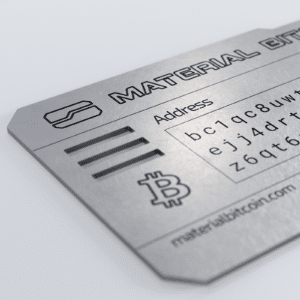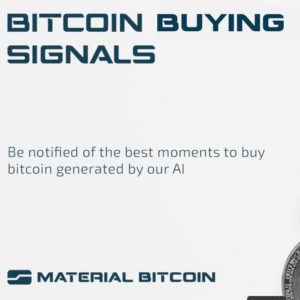Crypto wallets are where digital assets are stored, and typically allow you to send, receive and manage your crypto.
However, it is important to note that not all crypto wallets are the same.
There are many variations of wallets, along with their own sub-section of options.
The two main types are self-custodial and custodial wallets, which determine who controls your private keys. From there on, there are software wallets and hardware wallets available within each.
Knowing the difference between these two is key to selecting the right option for your crypto needs.
Whether you are a daily trader, DeFi user, or long-term holder might influence your preference. In this post, we are going to explore the world of a self-custodial wallet vs. non-custodial wallet to help you pinpoint your best option.
Custodial vs Self-Custodial Crypto Wallets
| Custodial Wallet | Self-Custodial Wallet |
|---|---|
|
|
|
|
|
|
|
|
What Is a Custodial Wallet?
A custodial wallet is a type of crypto wallet where a third-party service, like a cryptocurrency exchange, “holds” your private key.
In a way, this means that although you own your crypto funds, you don’t actually have control over who can access your assets as you don’t have custody over your private keys.
For example, popular exchanges like Coinbase and Binance utilize custodial wallets. To a certain degree, this has some benefits for some users, especially beginners who don’t understand what is a public or private key, or for daily traders who want the ease of access to an exchange.
You can think of a custodial crypto wallet similarly to a bank, in the sense that as a customer, you need to trust that the bank, or in the case, the exchange will safeguard your assets.
But a major issue is that not all exchanges are insured or can necessarily return your funds if they are hacked or go out of business!
Did you know?
The Binance exchange was hacked in October 2022 for about $570 million.
What Is a Self-Custodial Wallet?
A self-custodial wallet gives you complete control over your private key. This means that there is no third party involved in managing your assets.
When you use a non-custodial wallet, you now have become your own bank. This means that you are responsible for all the safety and security of your private key.
If you lose access, your crypto could be lost forever – unless you are smart enough to back it up on a seed phrase metal crypto wallet!
Although it might seem like more work and a lot of responsibility, 66.5% of crypto investors prefer self-custodial wallets.
Crypto wallet providers like MetaMask, Ledger, and Material Bitcoin offer non-custodial wallets, however, it is vital to understand the difference between all three of these examples.
Here’s a summary of each to help you understand the difference:
Software Wallet
Although MetaMask is a self-custodial wallet, it is a hot wallet, which means that it is always connected online. There are security measures in place to protect your assets however the fundamental nature of a software wallet means that it is more susceptible to hacking attempts and attacks.
This is not as common in hardware wallets, like Material Wallets due to being 100% offline.
Electronic Hardware Wallet
Ledger is a popular hardware crypto wallet that is used by many around the world. It is known for its user-friendliness and safety features.
However, this is an electronic hardware wallet which means that it relies on connecting to external devices to function, such as a mobile phone or computer.
Since the physical device itself has an electronic screen, it also relies on the user’s responsibility for charging the device to function.
Luckily, there is a third option that is much more user-friendly and simpler: a cold storage wallet, like Material Bitcoin.
Non-Electronic Hardware Wallet
A non-electronic hardware wallet, like Material Bitcoin, is considered a cold wallet. This means that it is truly 100% offline and doesn’t rely on connecting to external devices to function.
All of these wallets are self-custodial, but as you can see they each offer degrees of added security and safety.
Custodial and self-custodial wallets differ in several critical ways. Here’s an overview of the two:
| Feature | Custodial Wallet | Self-Custodial Wallet |
|---|---|---|
| Control of Funds | Third-party service control keys | User controls keys |
| Security | Relies on exchange or provider | The user is responsible for the security |
| Ease of Use | Beginner-friendly, easy recovery | More complex, requires knowledge |
| Risk | Vulnerable to hacks on third-party | Risk of losing access if keys lost |
| Privacy | Less private (KYC required) | More private (no KYC needed) |
Self-Custodial Wallet vs Custodial Wallet Security: Which Is Safer?
Safety of a Self-Custodial Wallet
As you control your private keys, you have more autonomy over your assets and the safety of keeping them offline in your own control. However, this comes with its own set of risks, including user error.
Losing access to a private key or falling victim to phishing scams can result in the permanent loss of funds. For example, even if you are smart enough to use the seed phrase recovery, if you misplace this phrase, your wallet is lost forever.
On the other hand, self-custodial wallets have additional security features like two-factor authentication (2FA) and the ability to pair with a hardware wallet.
Some of the best hardware wallets, like Material Bitcoin, are physical objects that store your private keys offline, making them highly resistant to hacking.

Backup and Recovery Options for Self-Custodial Wallets
Self-custodial wallets rely on seed phrases, which is the only way to recover your wallet if access is lost.
You are responsible for securely storing this seed phrase, always recommended to be kept offline, preferably on a metal crypto wallet, in storage, or in a safe.
Did You Know?
Chainalysis has found that over 20% of Bitcoin in circulation has been lost due to forgotten passwords or unrecoverable private keys.
Safety of Custodial Wallets
Custodial wallets, where a third party holds and manages your private keys, are usually more convenient for users but come with larger security risks.
The biggest threats are hacking, insider fraud, and exchange closure. Since the provider controls the private keys, you are vulnerable if the platform is compromised.
A famous example is the 2014 hacking of the Mt. Gox exchange. It led to the loss of 850,000 Bitcoin! More recently, in 2019, Binance lost over $40 million worth of Bitcoin due to a security breach.
These are just some examples of incidents that highlight the major problem of surrendering your private key custody to a third party.
Fees: Self-Custodial Wallet vs Custodial Wallet
Custodial wallets typically charge fees for services like withdrawals, deposits, and transactions, especially when moving funds in and out of exchanges.
The rate of the fees can change depending on the platform and can vary regarding the traffic on the blockchain. On the other hand, self-custodial wallets usually don’t have direct fees, since they don’t use third-party services.
However, you need to keep in mind that you may still need to pay network or transaction fees when sending crypto.
When choosing a wallet based on fees, think about how frequently you plan to make transactions, and which crypto you want to buy/sell.
If you are an active trader, a self-custodial wallet with lower fees is your best choice, and those who are looking to hold Bitcoin for the long term should consider cold storage wallets for top security.
Pros and Cons of a Self-Custodial Wallet vs Custodial Wallet
| Self-Custodial Wallets | Custodial Wallets |
|---|---|
Advantages:
|
Advantages:
|
Disadvantages:
|
Disadvantages:
|
KYC and Legal Requirements
When it comes to regulations between a self-custodial wallet vs custodial wallet, there are certain similarities and some differences, depending on your region and government jurisdiction.
KYC (Know Your Customer) in Custodial Wallets
Custodial wallets more often than not require users to complete Know Your Customer (KYC) procedures to comply with legal and regulatory requirements.
The KYC process usually involves verifying your identity by providing your personal information. This can include government-issued IDs, or passport numbers in hopes of preventing money laundering, fraud, and other illegal activities.
As crypto grows globally, many governments are enforcing stricter compliance rules to monitor and regulate crypto transactions. In the U.S. the Financial Action Task Force (FATF) guidelines enforce that exchanges and custodial wallet providers use KYC to align with global anti-money laundering (AML) regulations. This is also true in Europe and some parts of Asia.
Is KYC Required for Self-Custodial Wallets?
Self-custodial wallets, on the other hand, do not require KYC, always…
In theory, as the private keys are owned and controlled by you, your funds do not involve any third party. Which should exempt you from needing to provide your personal information.
However, things are quickly changing.
In 2022, the EU implemented laws that require KYC verification even for self-custodial wallet users in an attempt to hinder illegal activities.
This a gray space that is continuously evolving and chaning depending on governments and regions.
How to Choose Between Custodial and Self-Custodial Wallets
When choosing between custodial and self-custodial wallets, you must consider the most important factors:
➡️Security
➡️User experience
➡️Fees
➡️KYC requirements and responsibilities
➡️Your investing strategy (trading or long-term hold)
Regardless of which one you choose, our suggestion is to always store larger amounts of crypto on a cold storage wallet.
The security of your digital assets is more important than anything else.
FAQs
What Is the Main Difference Between a Self-Custodial Wallet vs Custodial Wallet?
- The key difference is ownership. Custodial wallets are managed by a third party, while self-custodial wallets are controlled by you.
What Are the Best Self-Custodial Crypto Wallets?
- MetaMask is great for DeFi and Ethereum-based assets, while Exodus is a good choice for multi-crypto investors and Material Wallets are ideal for investors who want easy self-custody with top security features.
Which Option Is the Safest for Storing Cryptocurrency?
- For maximum control, self-custodial cold hardware wallets are the safest.










0 Comments